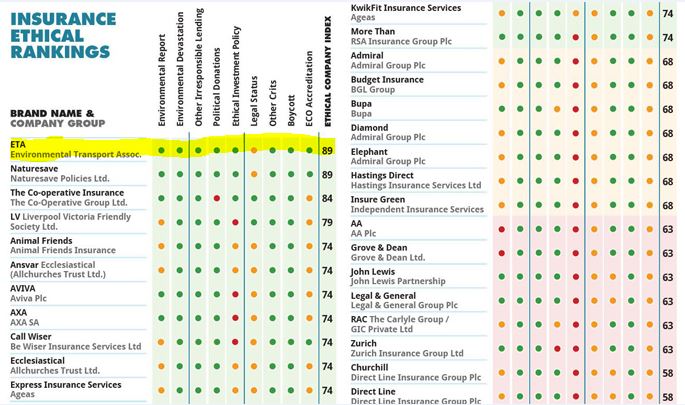
Motoring folklore has it that the driving experience is but a shadow of its former self. In the good old days: Tarmac was better laid and maintained; Parking wardens understood the need to stop illegally and would politely walk away without issuing a ticket; Police officers understood that speeding was not a ‘real crime’ and would turn a blind eye. Roads were clear. Life was good.
It may be that all these things are true, but it has never been the case that the school run is a root cause of congestion. of course, it’s a relatively new phenomena, but this doesn’t stop people – even today – claiming that we can solve the problem of congested roads simply by getting children to walk or cycle to school. There are huge benefits to children, not to mention society as a whole, in enabling people of all ages using active travel to get to and from work (after all, school is a child’s office – they have no less, or more, right to be in a car at peak times than anyone else), but one of the fundamental rules of traffic is that it fills road capacity.
Clean-air campaigners have written this week to the government calling for a ban on parents driving their children to school in an attempt to cut down on toxic levels of air pollution. While it’s true that hundreds of thousands of children were being exposed to dangerous levels of air pollution outside schools, colleges and nurseries, banning school run traffic is short term fix. If every child started walking to school then by next year there would be no lull in traffic levels over the summer holidays – the extra road space would quickly be filled by business and commuter traffic.
Close the roads around schools at peak times in order to tackle road danger by all means, but to imagine the measure will reduce air pollution in any meaningful sense is naive and underplays the gravity of the situation. Over 40,000 people die prematurely in Britain every year as a result of air pollution. The situation is so dire that Britain has been referred to Europe’s highest court for it’s failure to tackle illegal levels of air pollution. We look likely to face a significant fine. Wouldn’t it be wiser to spend that money on measures that help us all get out of our cars?
Ethical insurance
We are proud to be an ethical company. The Good Shopping Guide each year reveals the good, the bad, and the ugly of the world’s companies and brands, with a view to supporting the growth of social responsibility and ethical business as well as a more sustainable, just society.
Beating household-name insurance companies such as John Lewis and the Co-op, we have an ethical company index score of 89 – earning us joint-first place with Naturesave.

Your Journey. Our world
The ETA was established in 1990 as an ethical provider of green, reliable travel services. Twenty seven years on, we continue to offer home insurance, cycle insurance, travel insurance and breakdown cover while putting concern for the environment at the heart of all we do.

Tony Williams
People who think this or that should be banned, or that everyone should be compelled to do something else, because they believe it would solve whatever problem they are currently concerned about, ought to think about other people and appreciate not everyone has a short cut to Utopia. Parents drive children to school because they go on to drive to work afterwards. Or they drop them with grandparents who live some distance from the school and could only get to the school by car. Or the only school in which the child could get a place was one which necessitates a car journey. The clean air campaigners who want the government to ban driving children to school ought to be able to appreciate the realities facing many families, but since they apparently can’t do that they should be compelled to take part in the daily life of other families in order to learn about the situations that others have to face.
Peter Gillott
“If every child started walking to school then by next year there would be no lull in traffic levels over the summer holidays”. This statement is a little puzzling, but the best meaning I can put on it, is that traffic is bad in summer holidays as well as school terms and that obviously the school run has no impact on that. Actually, the rest of that sentence suggests there’s a mistake in there.
Surely the question is, whether traffic is worse in school terms than in school holidays. My strong impression on my couple of mile commute into work is that it is. There was a much referred-to effect that when the M25 was completed, it didn’t take traffic in London long to get as bad as it was before. For particularly busy roads, it may well be that any traffic reduction in relation to school runs would be counteracted by additional traffic being generated, but it’s impossible to believe that this is the case for all roads, and I’d be surprised if it’s the case for the majority of them.
Banning the school run seems like a non-starter and it’s not clear what positive effect campaigning for it can achieve. As someone who in the seventies walked the half mile or so to primary school, and (following a lift or a bicycle ride to the station) got a train the few miles to secondary school, I do wonder if all those car journeys are necessary.
Vincent Edwards
I would ban children from walking to school. It’s far too dangerous.
I live within 200 yards of three primary schools. Twice a day there are scenes of utter chaos as parents/grandparents deliver and collect their charges, jostling for position to get as near as possible to the school gate. Why not build drive-through classrooms? I ask myself. Fortunately the local authority has painted bright yellow zig-zags with “School keep clear” advice on the road outside each school. This is to tell everyone not connected with the school to stay away and leave room for parents to park for as long as they deem necessary. There isn’t room for all of them, but fortunately there’s plenty more space on the pavement or on the yellow lines at the street corner. A few irresponsible parents park up to a two-minute walk away from the schools. I have considered contacting social services in respect of these delinquents – making their children walk all that way, what is the world coming to?
When I was at school in the 1960s a child being brought to school or collected in a car was a cause of comment, if not excitement. These days, few children walk to school. Mine was an era of largely stay-at-home mothers who walked their children to the local school until, before the age of 6 they were deemed capable of taking themselves. Now parents commonly drop their children off on the way to work. Add to this, ever more people have cars. There is a general lack of respect for parking restrictions and little enforcement of them. Walking generally is a dying art, with many driving ridiculously short distances when a walk would take no longer. Then there is the commonly held perception that behind every lamp post a predatory paedophile lurks, just waiting to pounce on an unaccompanied child. Public transport is more expensive than ever. Finally, many children do not go to their local school, and often cross town to go to a “better” school.
How do you ban parents from taking children to school by car? Expel children whose footwear does not show adequate wear and tear? The school run causes chaos across the country, but I see no solution to it without very significant changes in the way we get about generally.